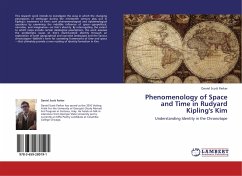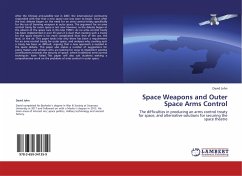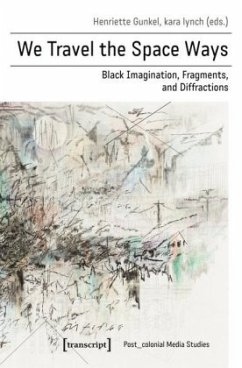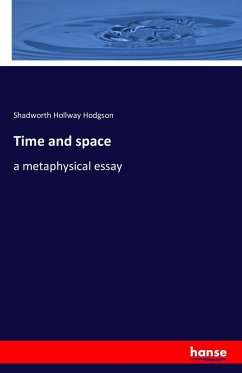
Phenomenology of Space and Time in Rudyard Kipling's Kim
Understanding Identity in the Chronotope
Versandkostenfrei!
Versandfertig in 6-10 Tagen
32,99 €
inkl. MwSt.

PAYBACK Punkte
16 °P sammeln!
This research work intends to investigate the ways in which the changing perceptions of landscape during the nineteenth century play out in Kipling s treatment of Kim s own phenomenological and epistemological questions by examining the indelible influence of space geopolitical, narrative, and imaginative on Kim s identity. By interrogating the extent to which maps encode certain ideological assumptions, the work assesses the problematic issues of Kim s multi-faceted identity through an exploration of both geographical and narrative landscapes and the various chronotopes Bakhtin s term for coe...
This research work intends to investigate the ways in which the changing perceptions of landscape during the nineteenth century play out in Kipling s treatment of Kim s own phenomenological and epistemological questions by examining the indelible influence of space geopolitical, narrative, and imaginative on Kim s identity. By interrogating the extent to which maps encode certain ideological assumptions, the work assesses the problematic issues of Kim s multi-faceted identity through an exploration of both geographical and narrative landscapes and the various chronotopes Bakhtin s term for coexisting frameworks of time and space that ultimately provide a new reading of identity-formation in Kim.












